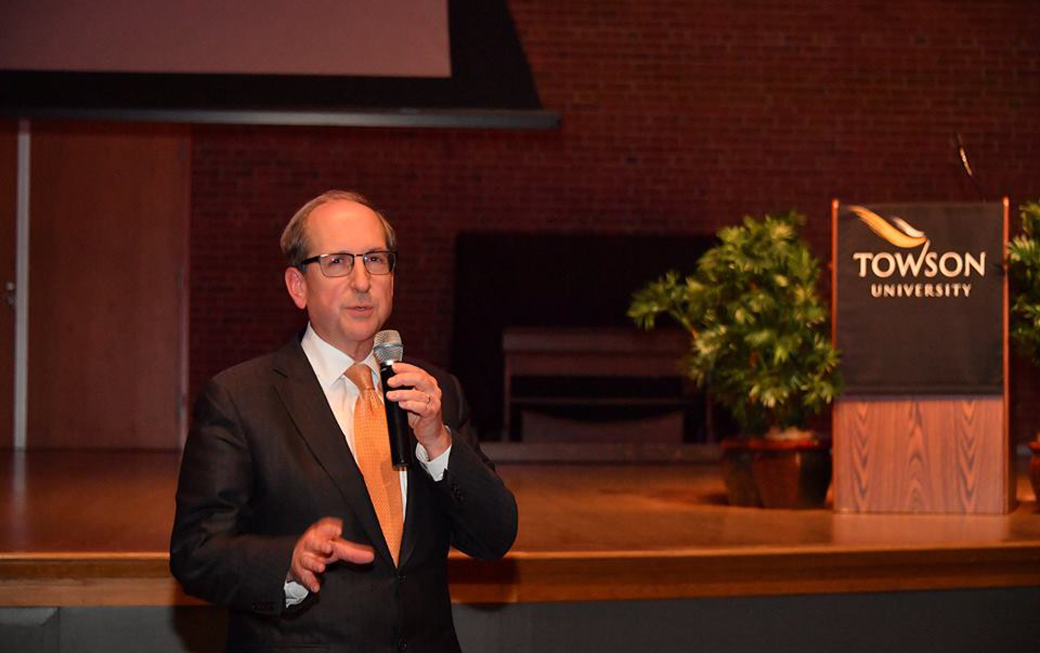Discussing the complexities of free speech on college campuses
Towson University hosted a lecture on free speech Thursday at the Center for the Arts.
By Towson University on Sept. 27, 2018

On Thursday afternoon, Towson University hosted a lecture on the complexity of free speech on college campuses, with civil rights scholar Frederick Lawrence as the keynote speaker.
Lawrence, CEO of the Phi Beta Kappa Society, addressed a crowd of TU faculty, staff and students gathered at the Harold J. Kaplan Concert Hall in the Center for the Arts.
His lecture, titled "Free Speech on Campus: It's Complicated and it Should Be," focused on the challenges of free speech in a community — especially one like a college campus that features so many dissenting views.
And while free speech is complicated, Lawrence discussed why it's not only necessary to a college campus, but to our society as a whole.
"Free speech is not only the center of campus life, but of a self-governing people and a democratic society," Lawrence explained during the event. "But, for the reasons well known to all of us, free speech comes at a cost. Free speech can inflict a harm on society. But it is a cost worth bearing."
An accomplished scholar, teacher and attorney, Lawrence is one of the nation’s leading experts on civil rights, free expression and bias crimes. Lawrence has published widely and lectured internationally.
Lawrence recently wrote about how to exercise free expression and maintain civility. Lawrence ended the lecture by going over the three rules of what he called vigorous civility, which included:
- When we are engaged in difficult decisions and difficult debate, we disagree with each other without delegitimizing each other.
- At least in the beginning of a difficult conversation, we begin by questioning each others' ideas, and not each others' motives.
- As part of difficult conversations that we have with each other, part of the conversation, kind of as a forged exercise, should be a search for and articulation of common ground.
"I think civility has gotten a bad name in our time," Lawrence said. "Civility is seen as a placeholder for silencing people, or alternatively as something weak and soft, as opposed to what it really is — which is the essence of a community."
The event was sponsored by the Albert S. Cook Library, American Association of University Professors, Center for Student Diversity, Office of the President and Office of the Provost.
Thursday’s event is the cornerstone in a series of free speech events this semester at Towson University.